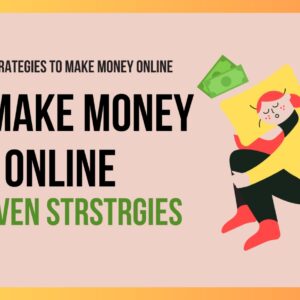Starting a blog is an exciting way to share your voice, build a personal brand, or grow your business. With over 600 million blogs online and 77% of internet users reading them, blogging remains a powerful tool for creators, marketers, and entrepreneurs. But choosing the right platform can make or break your blogging journey. Whether you’re a complete beginner looking to share your thoughts or a business owner aiming to build your brand, choosing the best blogging platform is crucial for your success.
What Makes a Great Blogging Platform ?
Before diving into the list, let’s explore the key factors to consider when choosing a blogging platform:
- Ease of Use: A user-friendly interface, ideally with drag-and-drop editors or no coding required, is essential for beginners.
- Customization & Design: Flexible templates and design options to make your blog stand out.
- SEO Features: Built-in tools for optimizing content, like meta tags, sitemaps, and fast loading speeds.
- Monetization Options: Support for ads, affiliate links, or paid subscriptions to turn your blog into a revenue stream.
- Ecommerce Integration: For bloggers selling products, seamless integration with online stores is a must.
- Scalability: The ability to grow with your audience, from a small blog to a large website.
- Pricing: Affordable plans, with free or freemium options for budget-conscious bloggers.
Top 15 Best Blogging Platforms Sites to Start Your Blog
1. WordPress.org

WordPress.org remains the most popular and one of the best bloggings platform worldwide. It powers over 40% of all websites and is perfect for bloggers who want full control, unlimited customization, and advanced SEO tools. With thousands of plugins, themes, and SEO tools, WordPress.org is the top choice for bloggers who want to scale. While it requires hosting and a bit of technical setup, the flexibility makes it ideal for professional bloggers, businesses, and content creators.
- Pros: Most flexible and customizable platform with powerful SEO tools.
- Cons: Requires hosting setup and some technical knowledge.
- Pricing: Free software; hosting starts at ~$3/month.
- Best For: Professional bloggers and businesses who want full control.
2. Wix

Wix is a beginner-friendly blogging platform with a powerful drag-and-drop editor. It’s perfect for bloggers who want to create beautiful websites without touching code. Wix offers customizable templates, built-in SEO tools, and app integrations. However, it’s more limited than WordPress when it comes to scalability. Still, for new bloggers who value design simplicity, Wix is an excellent option.
- Pros: Beginner-friendly drag-and-drop editor with stylish templates.
- Cons: Less scalable and customizable than WordPress.
- Pricing: Free plan; premium from $16/month.
- Best For: Beginners who want a quick, attractive blog setup.
3. Squarespace
If you’re a designer, artist, or creative professional, Squarespace is an excellent blogging platform. Known for its stunning templates and minimalist designs, it allows you to showcase your blog alongside your portfolio or online store. Squarespace is an all-in-one solution with hosting, analytics, and eCommerce built in. The main limitation is fewer third-party integrations compared to WordPress, but it’s perfect for those who want a stylish, modern blog without technical headaches.
- Pros: Stunning, mobile-optimized templates with all-in-one hosting.
- Cons: Limited third-party integrations and flexibility.
- Pricing: Plans start at $16/month.
- Best For: Creatives, designers, and portfolio-style blogs.
4. Medium
Medium is ideal for writers who care more about writing than web design. The platform gives you access to an existing community of readers, meaning your blog posts can reach new audiences faster. Medium has a simple, distraction-free editor and even a Partner Program that allows you to earn money based on reader engagement. However, you don’t own the platform or have much customization, making it less suitable for building a personal brand.
- Pros: Built-in audience and distraction-free writing experience.
- Cons: Limited customization and monetization control.
- Pricing: Free to start; optional membership $5/month.
- Best For: Writers who want to reach without managing a website.
5. Ghost
Ghost is a modern blogging platform built for independent publishers and membership-based blogs. It emphasizes clean design, speed, and monetization through subscriptions or memberships. Ghost is ideal if you want to build a paid newsletter or community-driven blog. While it requires hosting (unless you pay for Ghost(Pro)), it’s a powerful tool for bloggers who want to earn directly from their audience.
- Pros: Excellent for paid memberships, newsletters, and publishing.
- Cons: Requires hosting setup or Ghost(Pro) subscription.
- Pricing: Self-hosted free; Ghost(Pro) from $9/month.
- Best For: Professionals and creators building subscription-based blogs.
6. Blogger

Owned by Google, Blogger is one of the oldest blogging platforms. It’s completely free, easy to use, and integrates with Google services like AdSense for monetization. While it lacks advanced customization and feels outdated compared to newer platforms, Blogger remains a simple choice for personal bloggers or hobbyists who want a no-fuss blogging experience.
- Pros: Free, simple, and integrates with Google services.
- Cons: Outdated features and limited customization.
- Pricing: Free.
- Best For: Hobby bloggers and beginners testing blogging.
7. Webflow
Webflow combines the flexibility of coding with the ease of a website builder. It’s a great option for bloggers who want full design control without being restricted by templates. Webflow also has built-in SEO tools and allows you to scale your blog into a full website or business platform. The learning curve is higher than Wix or Squarespace, but the creative freedom makes it a favorite among designers and professionals.
- Pros: Advanced design flexibility without coding limits.
- Cons: Steeper learning curve than other site builders.
- Pricing: Plans from $14/month.
- Best For: Designers and businesses wanting full creative control.
8. Notion
Originally a productivity and note-taking tool, Notion has grown into a popular blogging platform through its publishing features. You can create content in Notion and publish it directly as a blog, making it perfect for knowledge-sharing, personal journals, or resource hubs. While it’s not as feature-rich as WordPress or Ghost, Notion is ideal for minimalists and creators who want a fast, simple publishing workflow.
- Pros: Easy publishing from notes to blogs with clean layouts.
- Cons: Limited SEO and design customization.
- Pricing: Free plan; paid plans from $8/month.
- Best For: Minimalist bloggers and knowledge-sharing creators.
9. Substack
Substack has exploded in popularity by combining blogging and email newsletters. Writers can publish blog posts that go directly to subscribers’ inboxes, and monetization is built in through paid subscriptions. It’s easy to set up and free to use, though Substack takes a 10% cut of paid subscriptions. If you want to build a loyal readership and earn through newsletters, Substack is a strong option.
- Pros: Built-in newsletter tools with monetization via subscriptions.
- Cons: Limited blog customization and design options.
- Pricing: Free to start; 10% fee on subscription earnings.
- Best For: Writers focused on newsletters and paid audiences.
10. Tumblr

Tumblr is a mix between a blogging platform and a social media network. It’s best suited for short-form content, visuals, memes, and niche communities. With its built-in reblogging and sharing features, Tumblr can help you quickly build an audience. However, it’s not the right choice for professional bloggers or businesses that need advanced SEO and monetization options.
- Pros: Great for microblogging with strong community engagement.
- Cons: Not suitable for professional, SEO-driven blogs.
- Pricing: Free.
- Best For: Creative bloggers, short-form writers, and niche communities.
11. Weebly
Weebly, owned by Square, is a beginner-friendly blogging platform that also doubles as a website builder. It offers drag-and-drop functionality, affordable plans, and eCommerce features. While not as flexible as WordPress or as stylish as Squarespace, Weebly is great for beginners and small business owners who want a simple blog at a low cost.
- Pros: Affordable and easy-to-use with drag-and-drop builder.
- Cons: Limited flexibility compared to WordPress or Webflow.
- Pricing: Free plan; paid plans from $6/month.
- Best For: Budget-conscious bloggers and small businesses.
Also Read: 33 Real Ways to Make Money From Your Hobbies
12. HubSpot CMS

If you’re starting a blog for business growth, HubSpot CMS is a top choice. It integrates seamlessly with HubSpot’s powerful marketing tools, making it easy to attract leads, capture emails, and track performance. HubSpot CMS is built for SEO, personalization, and scalability, but it’s more expensive than most platforms. It’s best suited for businesses and marketers who want blogging to drive measurable growth.
- Pros: Powerful for SEO, marketing, and business growth.
- Cons: Higher cost compared to beginner platforms.
- Pricing: Starts at $25/month.
- Best For: Businesses and marketers who want integrated growth tools.
13. LinkedIn Articles
LinkedIn Articles allows professionals to publish long-form blog posts directly on LinkedIn. This is a great way to establish thought leadership, share industry insights, and reach a professional audience. While it doesn’t offer customization or direct monetization, it’s excellent for building credibility and growing your personal brand.
- Pros: Access to a professional audience and networking reach.
- Cons: No customization or direct monetization.
- Pricing: Free.
- Best For: Professionals and thought leaders sharing insights.
14. Joomla

Joomla is an open-source CMS similar to WordPress but with more advanced options out of the box. It’s flexible, powerful, and customizable but also has a steeper learning curve. Joomla is ideal for developers or bloggers who want advanced features without relying heavily on plugins. If you’re tech-savvy and need a scalable blogging solution, Joomla is a strong choice.
- Pros: Highly customizable and flexible CMS.
- Cons: Steeper learning curve than WordPress.
- Pricing: Free software; hosting from ~$3/month.
- Best For: Developers and advanced users who want more control.
15. Shopify Blog

If you’re running an online store, Shopify Blog is the perfect way to add content marketing to your eCommerce site. Blogging with Shopify helps drive traffic through SEO, engage your customers, and promote your products. While it’s not as customizable as WordPress, it’s highly effective for store owners who want to boost sales through blogging.
- Pros: Integrated blogging with eCommerce tools.
- Cons: Limited compared to full-featured blogging platforms.
- Pricing: Plans start at $29/month.
- Best For: Online stores and eCommerce businesses adding a blog.
Also Read: 60 Best Business Ideas For Students To Earn Money with low Investment
27 Small Business Ideas for Women at Home
11 Best Niches for YouTube Automation Channels That Make Money
Tips for Blogging Success
- Optimize for SEO: Use keywords, meta descriptions, and alt text for images to rank higher on Google.
- Post Consistently: Aim for 1-2 posts per week, with an average length of 1,500 words for better engagement.
- Leverage Analytics: Track performance with tools like Google Analytics or platform-specific dashboards.
- Monetize Strategically: Explore ads, affiliate marketing, or subscriptions based on your platform’s features.
- Engage Your Audience: Use newsletters, comments, or social media to build a community.
How to Choose the Best Blogging Platform for You
For Beginners: Platforms like Wix, WordPress.com, or Hostinger are perfect if you want affordability and ease of use without dealing with technical setup.
For Creatives: If design is your priority, Squarespace and Webflow offer stunning templates and customization options tailored for artists, designers, and visual storytellers.
For Writers: Platforms such as Medium and Substack are ideal for writers who want a simple interface and built-in audience reach, whether through blogs or newsletters.
For Businesses: Choose Shopify or WordPress.org if you need a scalable blogging platform that supports eCommerce, advanced SEO, and growth.
For Budget Bloggers: Blogger and Tumblr are excellent free platforms for hobby bloggers or those testing the waters before investing in a paid solution.
For Professionals: Ghost and LinkedIn Articles are best for thought leaders and professionals looking to monetize through subscriptions or build authority in B2B industries.
Conclusion
Choosing the right blogging platform depends on your goals. If you want a long-term professional blog with full monetization, WordPress.org is the best choice. But if you’re just testing the waters, free platforms like WordPress.com, Medium, or Blogger are great starting points.
The best blogging platform is the one that aligns with your goals, budget, and technical comfort level while providing room for growth. Start with your chosen platform, focus on creating valuable content, and remember that you can always migrate or upgrade as your needs evolve.
Related Post: Best Side Jobs To Earn Extra Money
10 Beginner Friendly Digital Nomad Jobs
FAQ’s - Best Blogging Platforms in 2025
Ans: The best all-around blogging platform is WordPress.org because it offers unlimited customization, powerful SEO tools, and full control over monetization.
Ans: For beginners, Blogger, Medium, or WordPress.com (free plan) are excellent free options. If you want a built-in audience, Medium is especially effective.
Ans: Wix, Squarespace, and WordPress.com are the most beginner-friendly platforms. They don’t require technical skills and offer easy drag-and-drop features.
Ans: For ads, affiliates, and eCommerce → WordPress.org or Shopify Blog.
For memberships and paid newsletters → Ghost or Substack.
Ans: Yes! Platforms like Blogger, Medium, Tumblr, and LinkedIn Articles let you start a blog for free. However, for long-term growth and professional branding, a paid platform like WordPress.org is better.
Ans: WordPress.org, Webflow, and HubSpot CMS are the most SEO-friendly blogging platforms in 2025. They give you control over meta tags, URLs, site speed, and structured data.
Ans: If you’re writing casually or journaling, Medium, Tumblr, or Notion are excellent choices. They’re simple, distraction-free, and allow you to focus on writing.





Pingback: 11 Ways To Make Money From A Podcast 2025
Pingback: How to Start a Blog and Make $1000/Month in 6 Months
Pingback: How to Make Money on TikTok Without Showing Your Face 2026
Pingback: Top 17 Best Profitable Niches For Blogging in 2025
Pingback: Best Freelance Writing Niches That Pay Well 2026